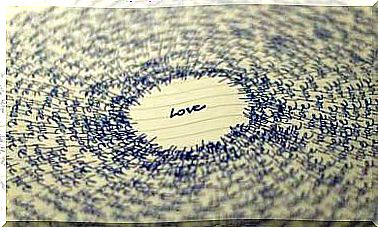Learned Helplessness: The Stone That Leads Us To The Bottom Of The Well

Learned helplessness is a relatively new concept in psychology. However, due to its importance in epidemics as important as depression, it is increasingly cited. But what is learned helplessness? Well, indeed, it is about learning. About what? Well, I don’t have the means to defend myself. The person who is governed by the helplessness learned in a field, or globally, understands that he does not have enough tools to be competent in that field.
Yes, okay, I made a little cheat at the exhibition. I have jumped from “defending” to “being competent”, and it is not the same. In fact, we can understand the perceived ability to defend ourselves as one of the many perceived competencies that we may have. Why did I start with defense? Because it is the context in which learned helplessness has been studied the most.
Let’s see how these beginnings were. Overmier and Seligman were the first to hint at part of this concept. His studies were focused on studying the relationship between classical conditioning and aversive instrumental conditioning. Through their experiments, they found that dogs were unable to learn a simple avoidance response after a particular condition. This condition was none other than having been subjected to shocks from which they could not escape.
Thus, in the first phase of the experiment they had learned that they had no control over the discharges, in this way they had closed their focus of attention to other elements. Why would they keep trying to escape if they had already learned that they couldn’t? Jorge Bucay, in one of his most famous stories, also picks up this idea: how past learning conditions our present and future behaviors.
The helplessness learned in people
Learned helplessness has the advantage of being relatively easy to inoculate people in the setting of ethically acceptable experiments. This has allowed us to study it in a controlled context. For example, we know that if we give two groups several lists of letters to form meaningful words, they will perform very differently if before one of the groups has faced the same task and, due to its difficulty, has not been able to solve any of them. ready.
In this case there are no discharges, there is no aversive stimulus, but we continue to see how a previous experience can nullify us in the face of a future challenge that, without that prior learning, we could face. Returning to our example, people who have spent half an hour trying to find a word in different lists have ended up learning that they are facing a challenge that they cannot overcome. In this way, they will begin to save resources to invest in later tasks.
In this way, in this position of minimal investment of resources, they will not be able to solve even those words that are easy to find. In fact, they have been away from the task for some time, without moving, in a defenseless position. Just like the dogs that did not escape the shocks.
On the other hand, we see how we can remove the group that has lowered its arms if we remove it from that position of helplessness. How? For example, by telling them that the difficulty of the exercise has lowered, for example. We can also tell you that we have seen how other groups have also been slow to start finding words. Thus, out of that position of defenselessness, people will try again to take control.
Helplessness learned in the context of depression
All things considered, something similar happens in many depression pictures. The person has stopped looking for work after months of encountering closed doors. The person has stopped going out with his friends after accumulating several negative experiences in the social context. The person has stopped …, because he has seen, he has learned, that he could not change the situation. He has understood that the result of working and striving is the same as standing still, doing nothing.
This learning has damaged his self-concept. Understanding that what happens to him is stable, he has begun to think that his ineffectiveness has to do with his own (internal) characteristic: he is not intelligent, he is not attractive, he is not valuable. Then, in addition to stopping implementing measures to change the situation, he has started to feel very bad. In other words, his self-esteem has also started to deteriorate.
From that moment on, he has also started to lose natural reinforcers: he no longer feels in the mood to do anything. You feel that the weight you are dragging is too great and the lights go out. The person feels that there is only one way out, to take refuge in it. The problem is that as she does so, she maintains an internal dialogue that only buries her more and more in the well.
As we see, the learned helplessness is not in itself what makes us fall, what ends our state of mind. On the other hand, it is the poison that attacks our organs, our mental pillars, causing them to collapse and, as a consequence, we sink. Precisely because of the complexity of the factors that intervene and the particular way of acting in each person, it is best to have the help of a specialist when there is a suspicion of depression.









